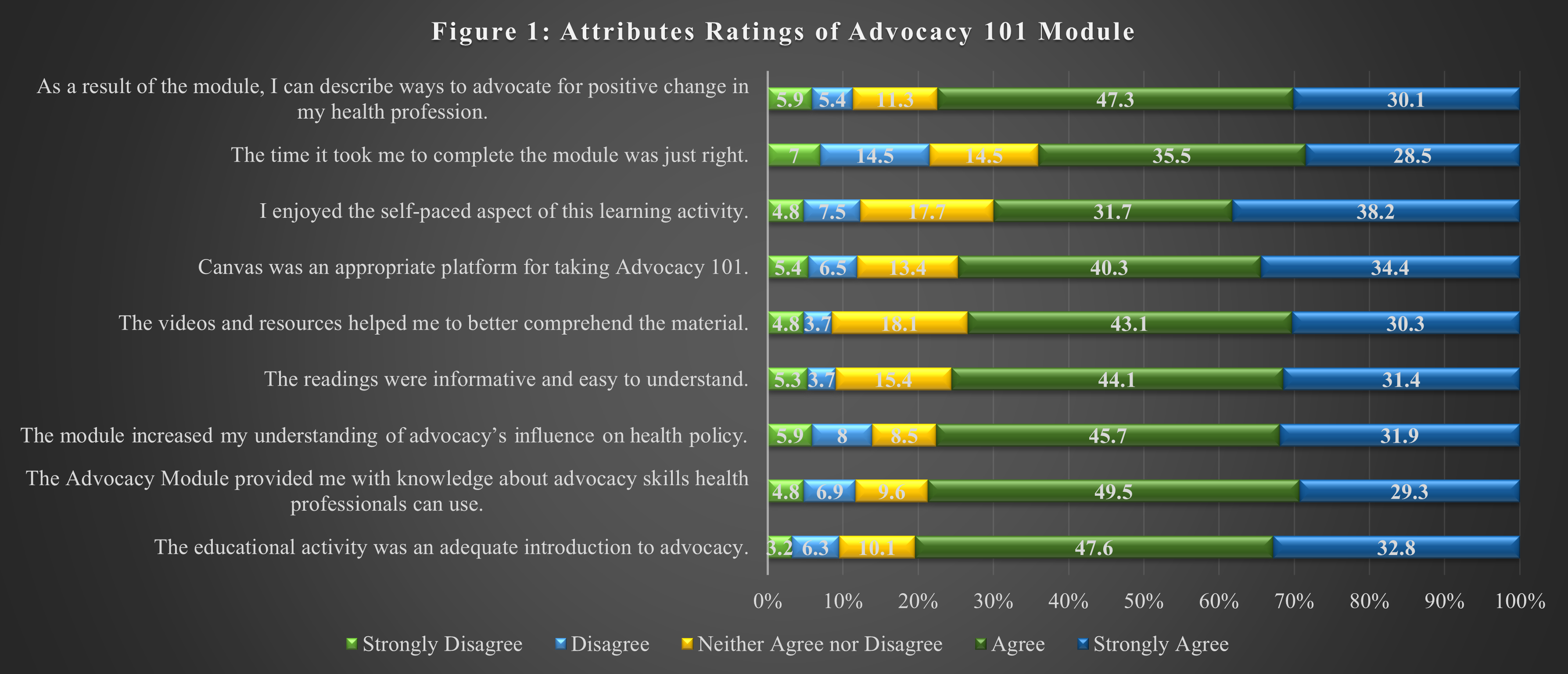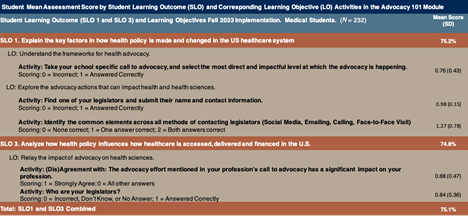Medical Education
Session: Medical Education 4
391 - Advocacy 101: The evaluation of a novel flipped classroom approach to engage medical students in advocacy education
Saturday, May 4, 2024
3:30 PM - 6:00 PM ET
Poster Number: 391
Publication Number: 391.1324
Publication Number: 391.1324
.jpg)
Sandra McKay, MD
Associate Professor
McGovern Medical School at the University of Texas Health Science Center at Houston
Missouri City, Texas, United States
Presenting Author(s)
Background: Physicians are called to be effective health advocates, yet many report lack of training or skills specifically in advocacy. There is a recognized lack of consistent education in introductory skill-based advocacy in undergraduate medical education (UME), thus creating an opportunity for action.
Objective: Determine the feasibility, acceptability and effectiveness of a novel approach to advocacy education in UME
Design/Methods: As part of our Institutional Quality Enhancement Plan, which focuses on improving students’ knowledge and skills in health policy and advocacy, an asynchronous module about advocacy was created by expert faculty, addressing two out of the 3 key student learning outcomes (SLOs): (1) Evaluate key factors in how health policy is made and changed in the U.S. healthcare system and (3) Analyze how health policy influences how healthcare is accessed, delivered and financed in the U.S. Topics included a review of the socioecological model of advocacy with case-based examples, how-to-guides on identifying legislators, utilizing social media campaigns, writing op-eds and policy briefs, and conducting effective legislative communications via phone calls, emails and in-person visits. After the module was completed, an in-person lecture, “Introduction to Advocacy,” was conducted with a case-based discussion on opportunities for advocacy. Pre- and post-evaluations were conducted with descriptive analyses and ANOVA performed.
Results: Students reported an increase in their self-assessed knowledge about advocacy from somewhat knowledgeable (pre: n=232, M=2.08/5, SD 0.61) to knowledgeable (post: n=229, M=3.3/5, SD 0.52) (p < 0.001) on a 4-point scale. Students also reported a significant increase in their understanding of what it means to advocate for the health profession with an increase from a mean of 2.25 to 3.37 on a 4-point Likert scale (p < 0.001). Post-activity, 82% of students could correctly identify their legislator, as compared to prior to the activity when 82% of students could not identify their legislator. Overall, students found the module informative and that the self-paced nature was appropriate (see figure1), responding favorably to the module evaluation. Students also demonstrated achievement on the SLO-linked assessments, earning a 75% or higher overall and by SLO (see Figure 2).
Conclusion(s): The use of novel platforms to introduce advocacy topics in UME are effective in translating key topics to learners. This approach allows for adoption in multiple settings due to its flexibility. Students demonstrated knowledge-gains and responded positively to the educational experience.


